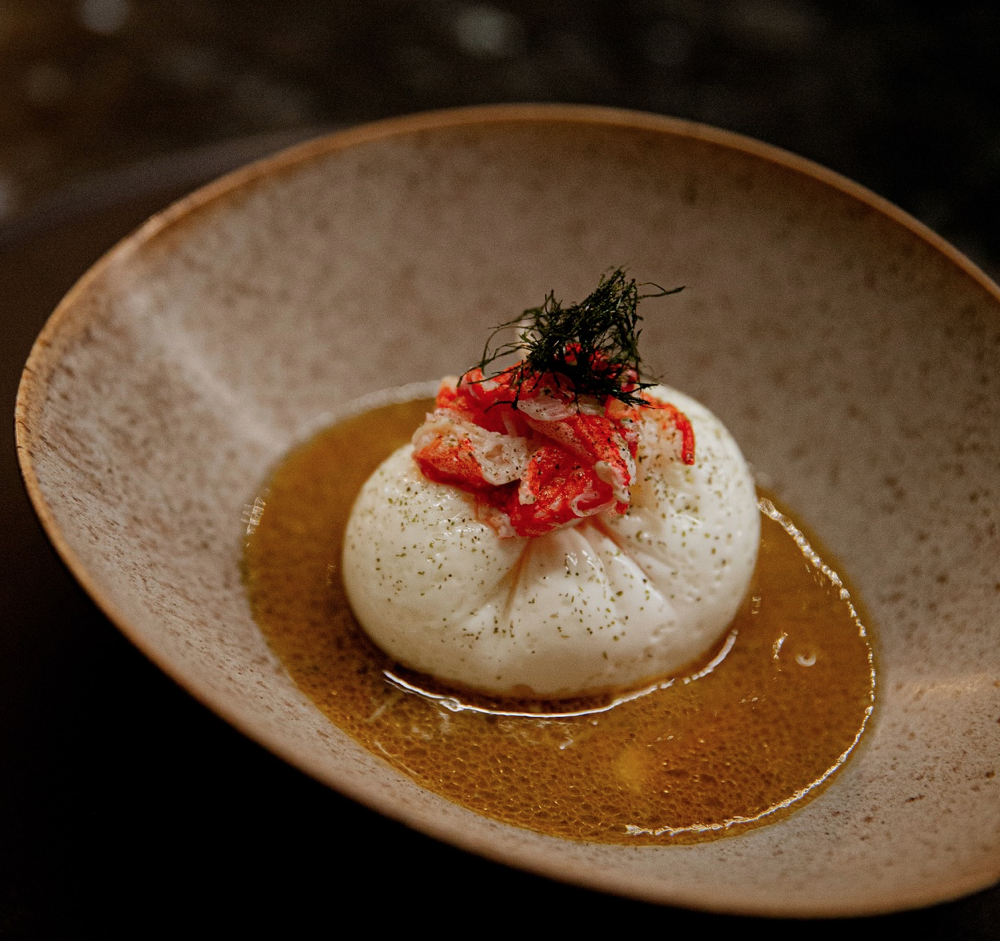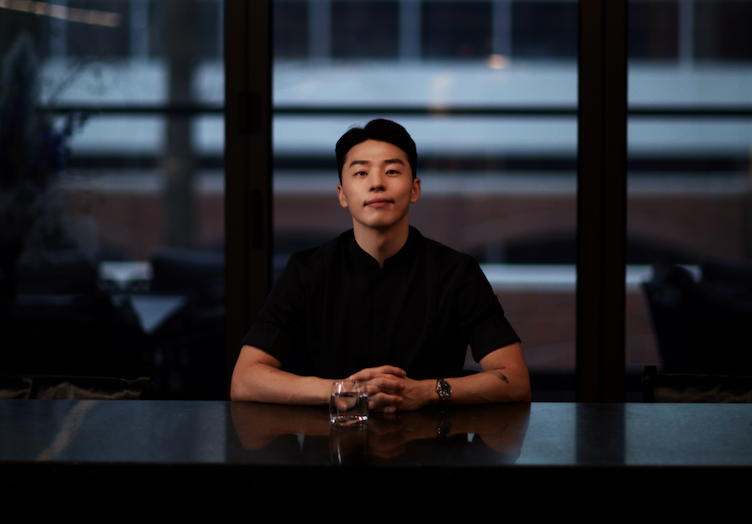
In the flourishing landscape of Korean cuisine in Shanghai, Chef Tom Ryu stands at the forefront, playing a pivotal role in advancing the city’s understanding of Korean food with artistry, precision, and soul. From his early success at Jeju (closed) to his latest venture NABI, paired with its more casual sibling WULI, Ryu’s influence continues to rise.
NABI, the idea had quietly matured in Chef Ryu’s mind for years. It took flight when he crossed paths with Yunmi Group, one of China’s most respected F&B management companies.
The partnership brought NABI to life.
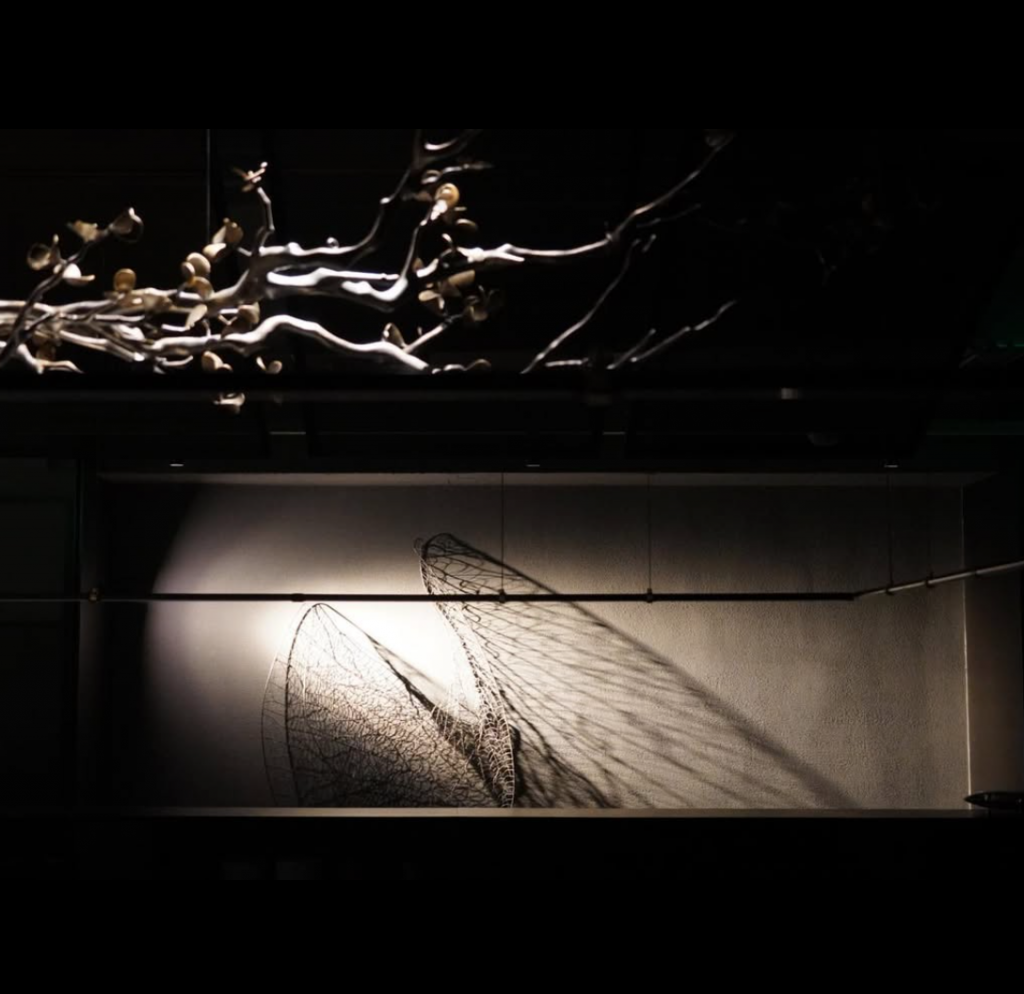

Named after the Korean word for butterfly, NABI is a symbol of transformation, grace, and fleeting beauty. Much like a butterfly emerging from its cocoon, it seeks to present a new vision of Korean cuisine: authentic in spirit, yet unafraid of change.
Located on the second floor of the WYSH complex on bustling Wuyi Road, NABI opened in early 2024. Monthly reservations open on the 1st of each month and are swiftly booked, and just months later, it earned a coveted spot on Tatler Asia’s Top 100 Restaurants of the Year.
An immersive Korean dining experience
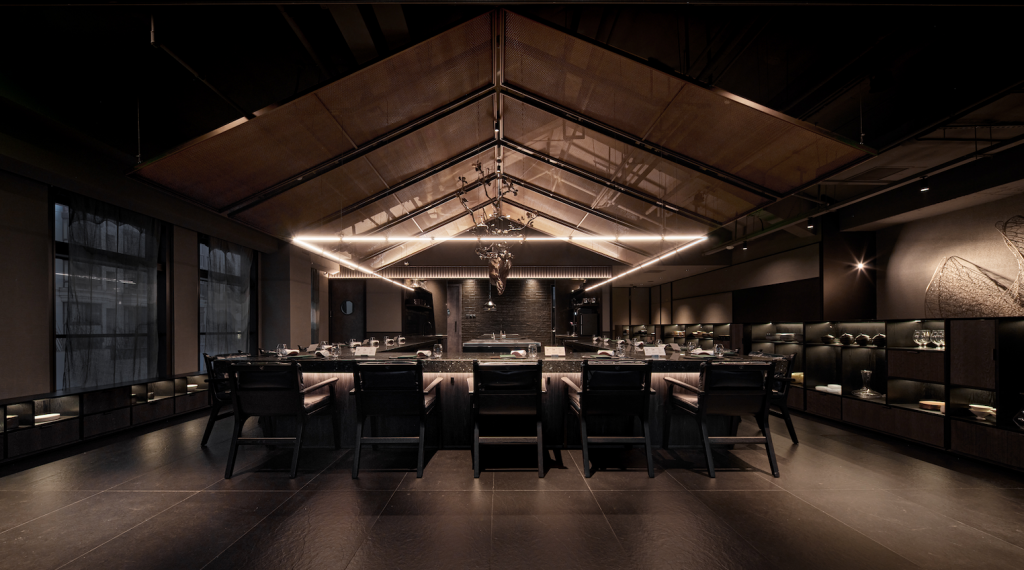

Entering NABI feels like stepping into a dream. The entire design is interspersed with butterfly-inspired details, including a sculptural installation spirals through the stairwell, sheer curtains evoke delicate wings, and even the veining in the marble tabletops mimics the patterns of butterfly wings.
Regardless of the butterfly-hued drapery dyed by Korean artisans, or the custom tableware crafted by artists in both China and Korea, every element pays quiet homage to Korean tradition.
At its heart, NABI is a multi-sensory culinary theatre – anchored by a chef’s table and shaped by Chef Ryu’s love to Korean flavors. Here, tradition is not preserved in amber, but reinvented with elegance and a global perspective.
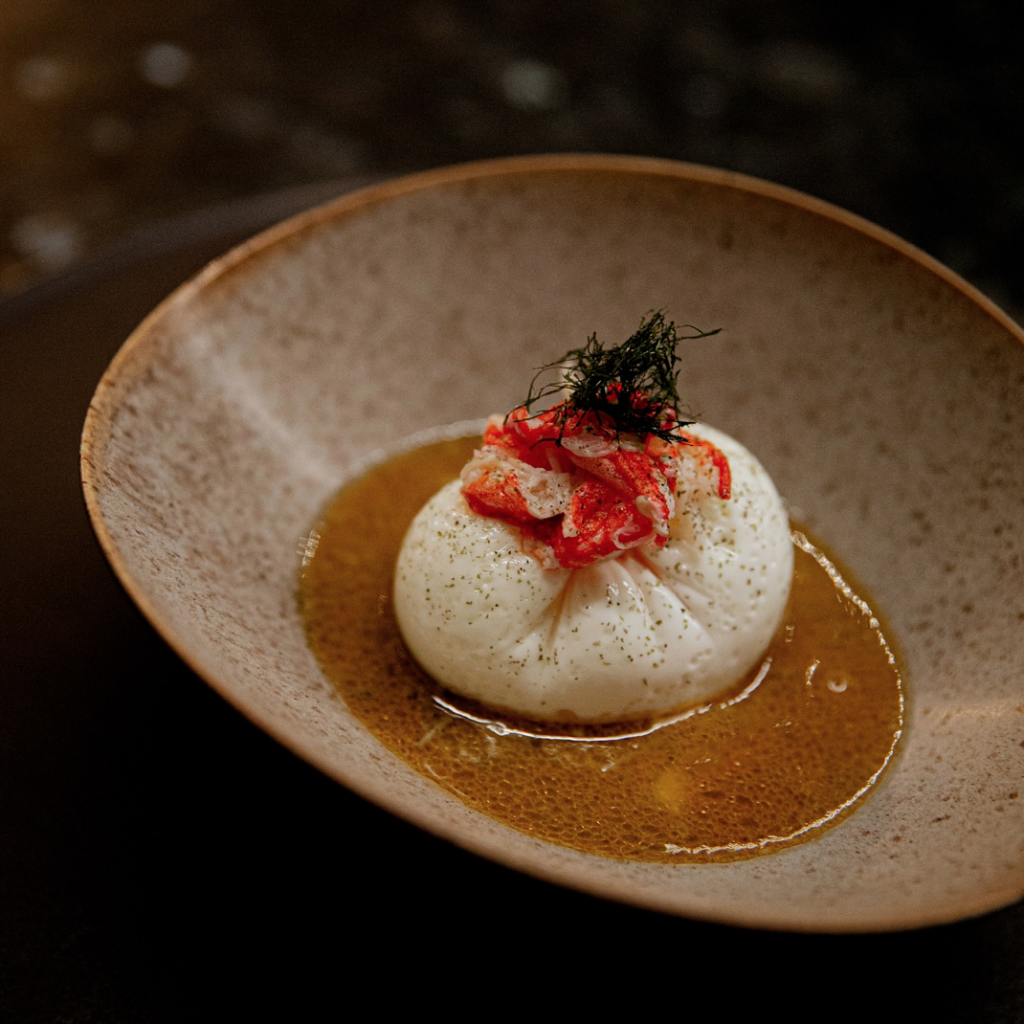
NABI’s set menus rotate seasonally, offering 12 courses inspired by quintessential Korean food and elevated with modern finesse. Drawing from Korea’s seasonal rhythms and traditions, many ingredients are flown in from Korea, including kelp from Jizhang, yellowtail from Jeju, and dried fish from Pohang.
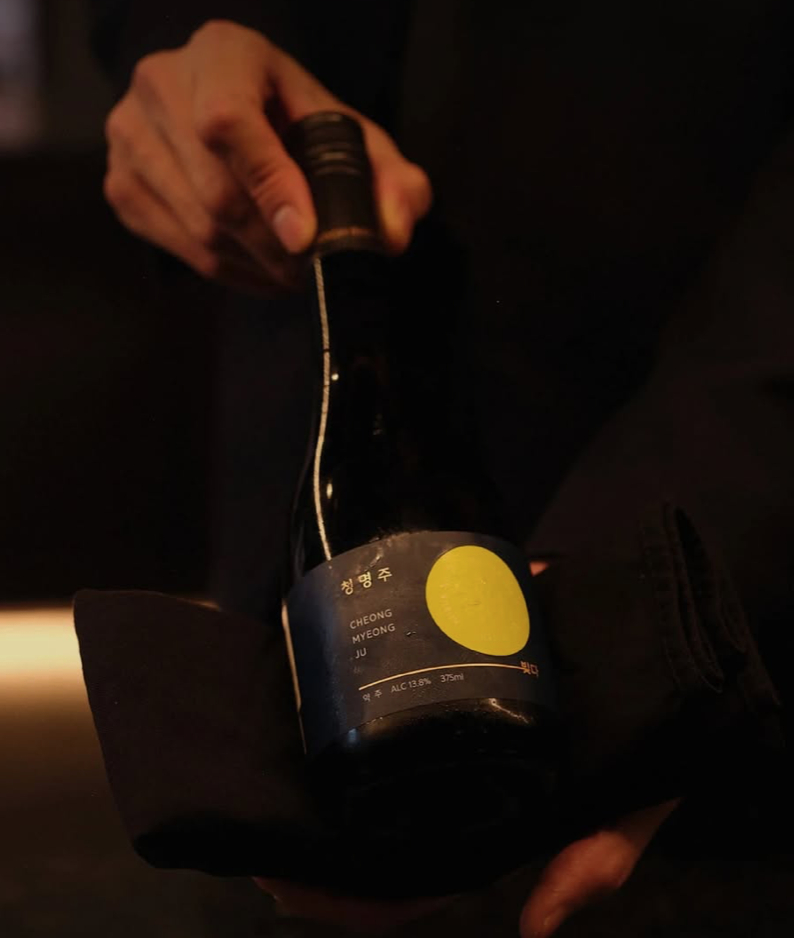
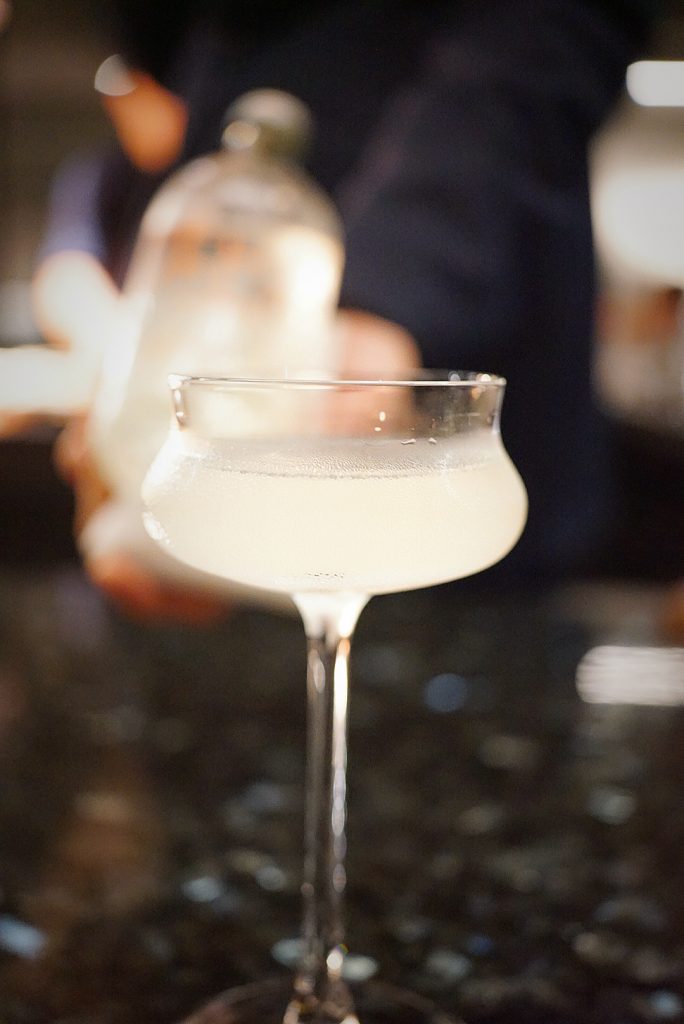
Further elevating the experience is NABI’s curated alcohol program. In collaboration with renowned sommeliers and master brewers, the restaurant provides a rare collection of traditional Korean wines and spirits, with highlights including Cheongmyeongju who is an artisanal brew by yeast master Han Young-suk and the premium Korean soju Misang, as well as a select offerings from heritage producers such as Chhoga Brewery. Each pairing is thoughtfully chosen to enhance the flavors of the cuisine.
A toast to tradition with boundless vision
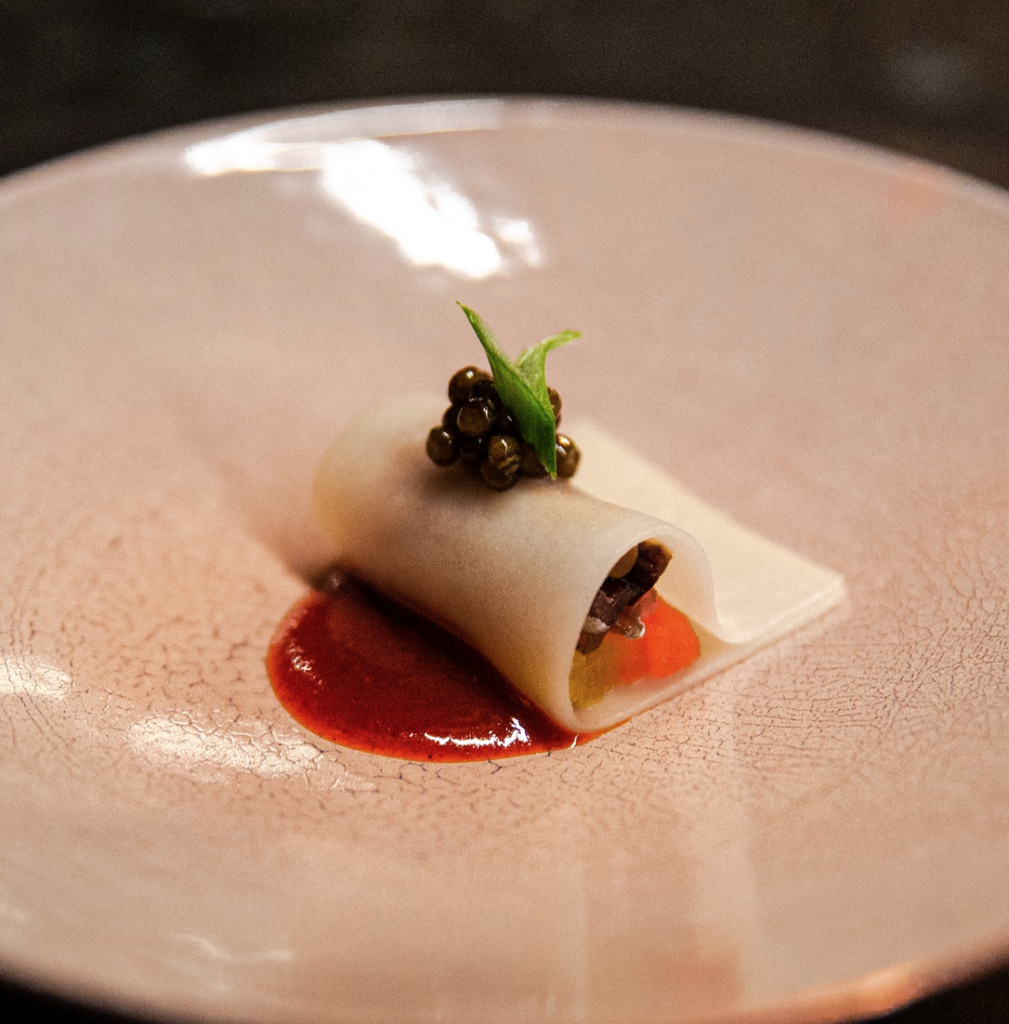
At NABI, Korean cuisine is not simply presented – it’s re-envisioned with boundless curiosity. Like the butterfly that gives the restaurant its name, NABI is in constant motion. And in Shanghai’s dynamic dining landscape, it is carving out a space all its own: one where heritage meets in whimsical flight.
The summer menu embodies Chef Ryu’s growing confidence and refined craftsmanship, grounded in a culinary journey devoted to the exploration and reinvention of traditional Korean gastronomy. Enriching this foundation is a spirit of openness and inclusivity, reflected in his thoughtful blend of global techniques, ingredients, and flavor profiles.
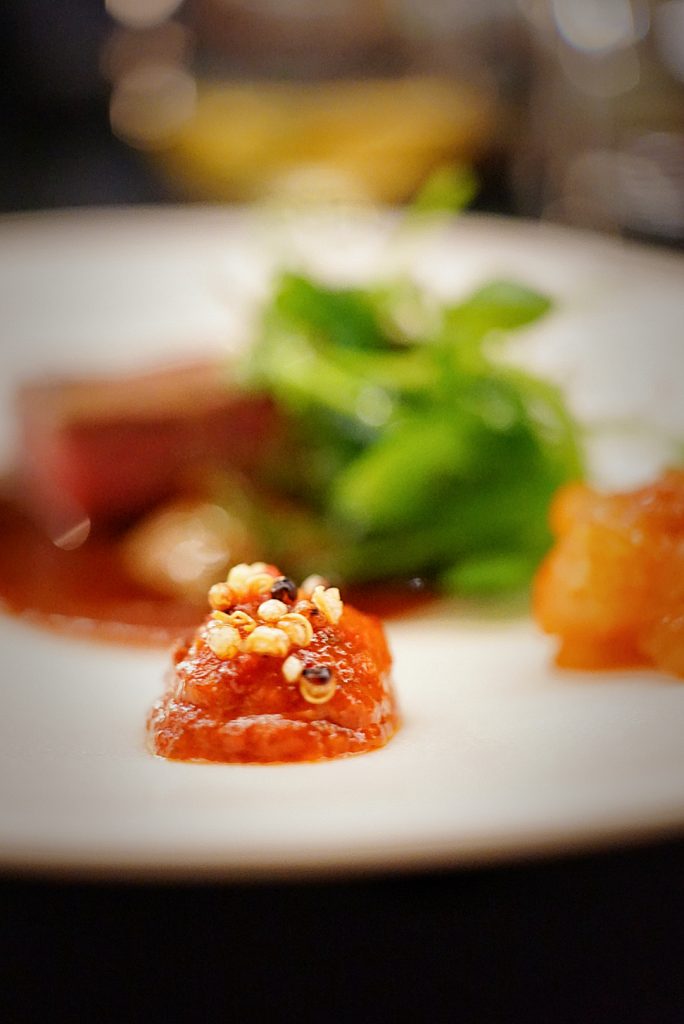
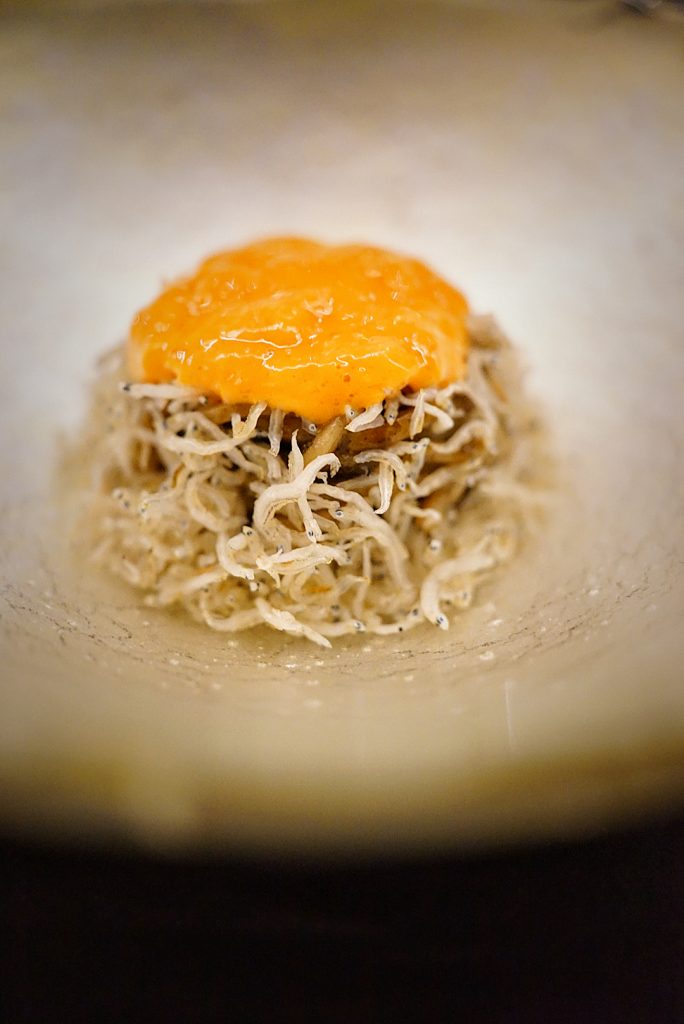
The menu feels both rooted and outward-looking, expressing a distinct Korean authenticity infused with a global perspective and universal appeal. A lineup of ingredients comprising corn, jokbal (pork trotters), anchovy, flounder, beef tenderloin, pomfret, and lychee forms the menu rich in contrast and harmony.
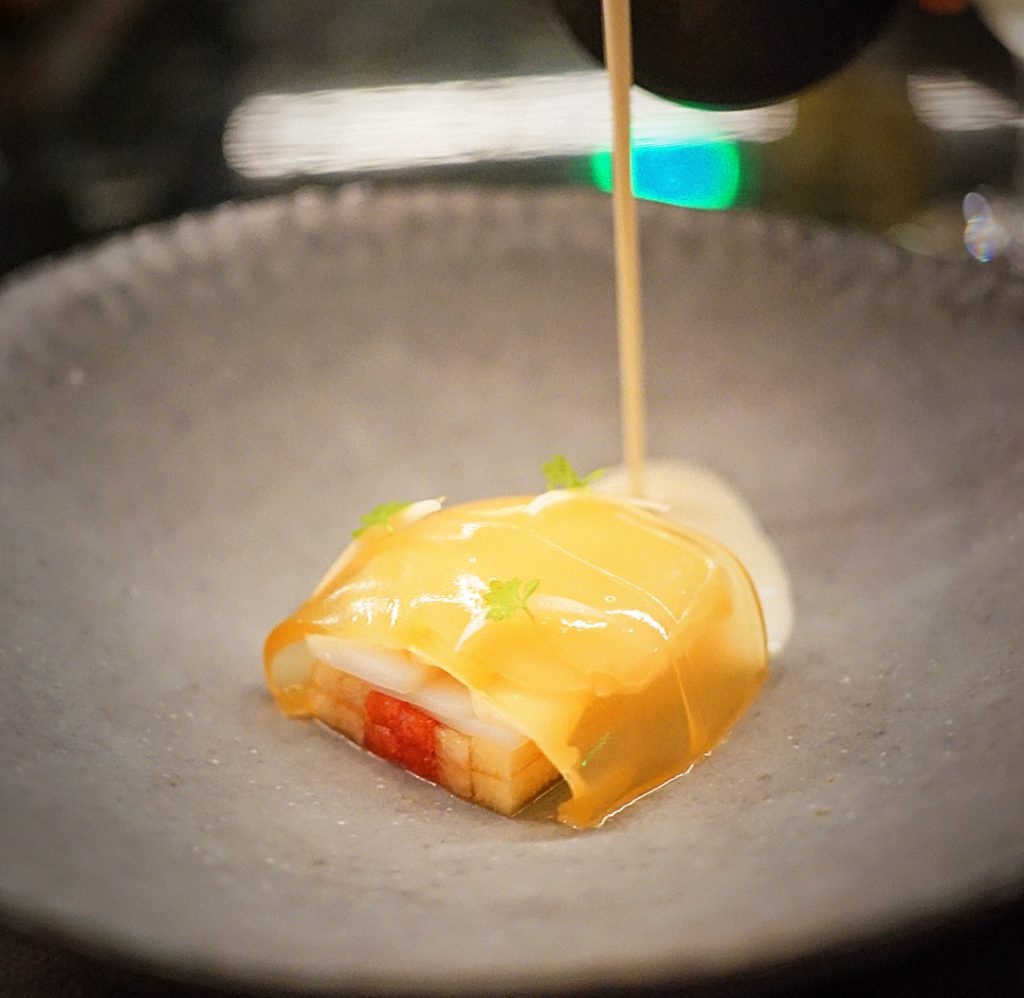
One of the most captivating starters is the seafood salad, a dish that tells Chef Ryu’s ingenuity to combine nostalgia with innovation. “I’ve always loved cantaloupe, though it isn’t native to Korea,” he noted. Inspired by this, he developed a salad of abalone, flounder, crisp pear, and juicy watermelon, cantaloupe jelly, and a drizzle of traditional Korean pine nut dressing, bringing a refreshing interplay of fruity sweetness, oceanic depth, and nutty richness.
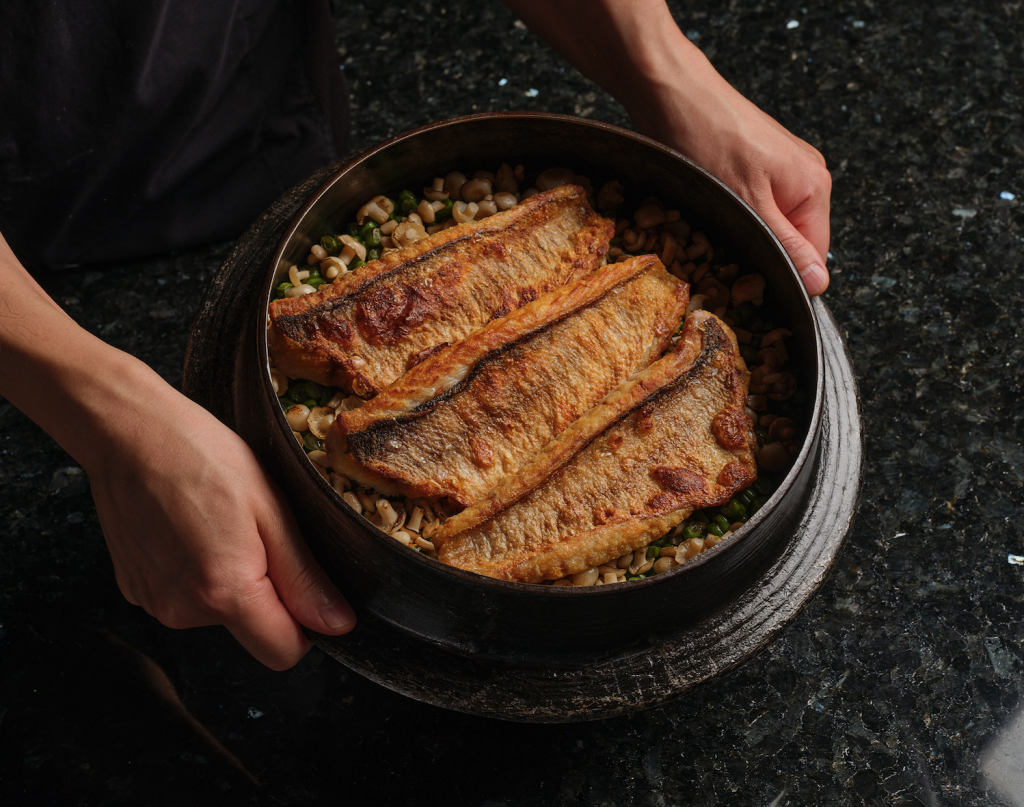
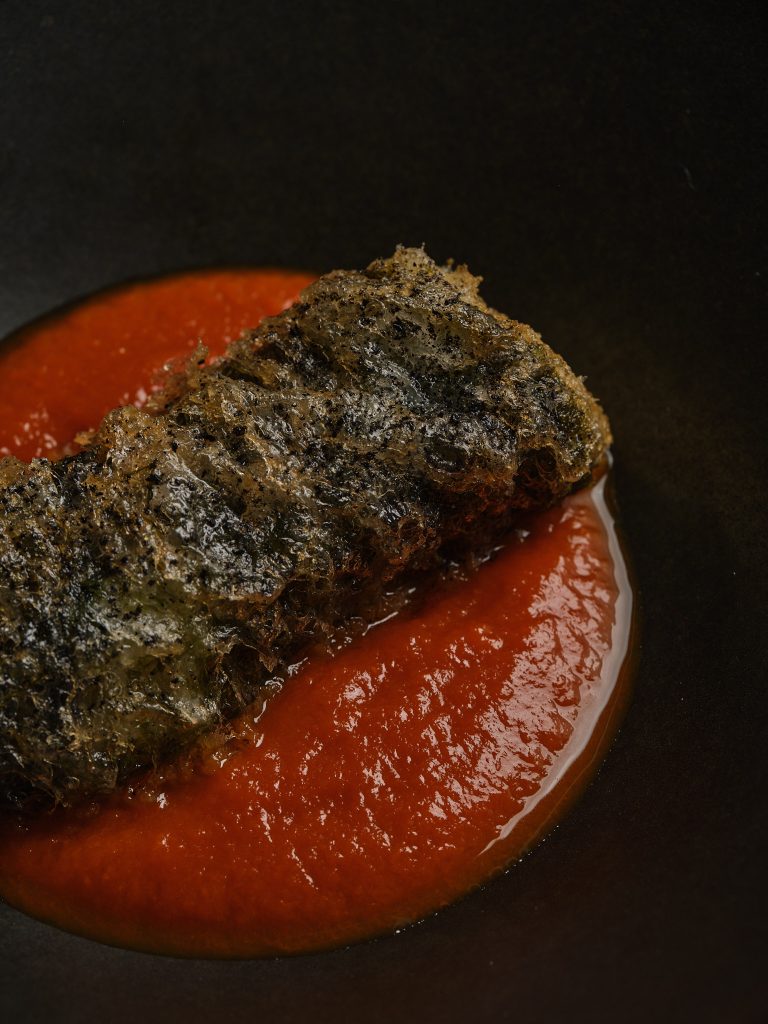
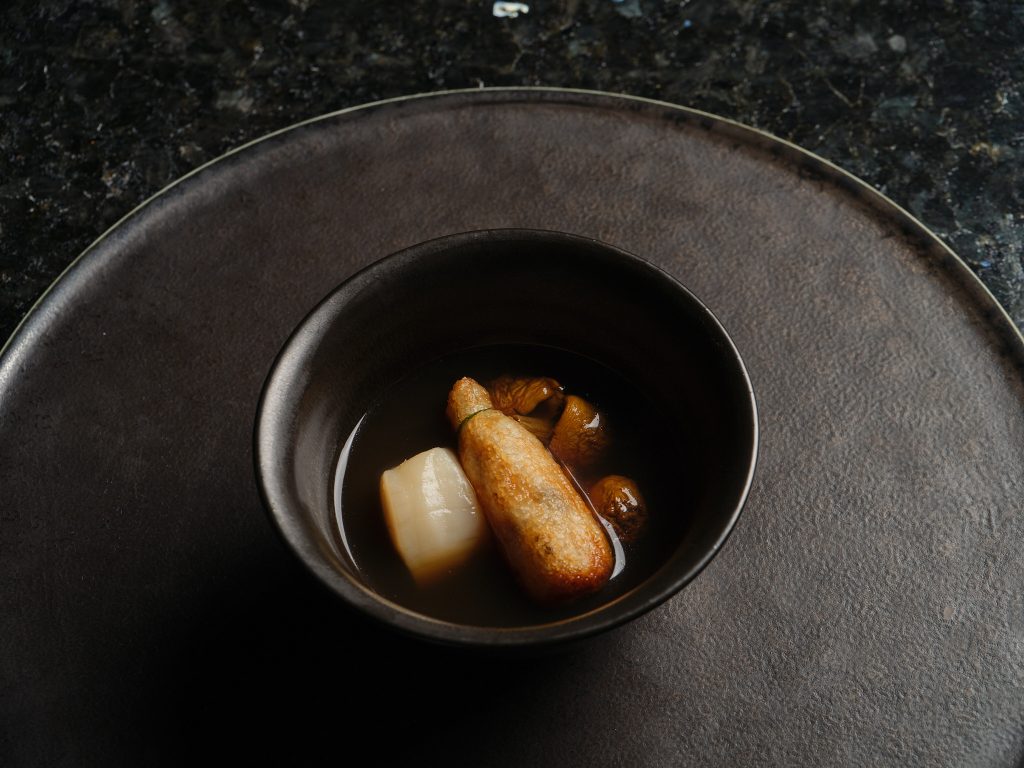
As a contemporary tribute to Korea’s iconic ginseng chicken soup, Chef Ryu’s version has a modern finesse, featuring a slow-simmered broth made from chicken, duck neck, medicinal herbs, and seasonal mushrooms. Served with bamboo mushroom, Agaricus blazei, and scallop, the dish is both comforting and complex – nourishing the palate and the spirit alike.
